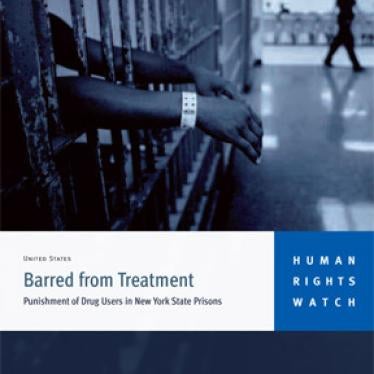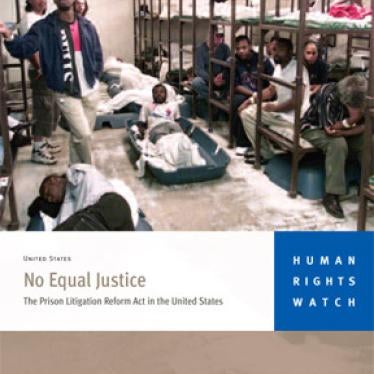The state Department of Correctional Services will try out a new drug treatment program for prisoners early next year. Already, opponents are attacking it as a bad idea, saying that New York is planning to get drug users hooked on an addictive drug in prison -- and then provide them with an ongoing supply when they are released. The reality is different.
Last December, the state Office of Alcohol and Substance Abuse Services proposed giving suboxone -- a prescription medicine used to treat opiate addiction -- to prisoners addicted to heroin. The goal is to help them avoid returning to drugs after their release. Suboxone blocks the effect of opioids on the brain, freeing heroin users from cravings and allowing them to function normally.
There is strong evidence that the medicine works. Heroin users are more likely to enter and stay in treatment with suboxone therapy than with abstinence-based counseling alone: "Just say no" just does not work for heroin users. They're also less likely on suboxone therapy to commit crimes that return them to prison. That's why suboxone is endorsed by the National Institute for Drug Abuse, the National Commission on Correctional Health and other health and prison experts. Suboxone can lower the risk of transmitting HIV and hepatitis C through sharing needles. It also can save lives: Prisoners with a history of opioid dependence face a high risk of overdose in their first few weeks on the street.
Behind the policy arguments are real human beings. Susan (not her real name), a self-described "heroin addict," has been cycling in and out of prison on drug charges. She went through the abstinence-based drug treatment program at a women's prison in New York.
"The minute I left the prison I went out and shot up, and I overdosed the very first day," she told me. "I woke up in a hospital and found myself back in jail."
Now, she is in New York City's main jail complex at Rikers Island, where she is on a drug similar to suboxone. She said it "doesn't make me feel high -- it just helps me feel normal."
Oscar (not his real name), a prisoner in a state correctional facility, was screened and identified as dependent on heroin when he entered the prison system. Without access to medication-assisted therapy, he is in a cycle of relapse and punishment that has placed him in continuous solitary confinement since September 2009. Because of his addiction, he'll stay in solitary until 2013. With no violent crime in his record, he could benefit now from medication and it certainly could help him when he prepares to re-enter the community.
Offering medication-based treatment is not new to New York's criminal justice system. The Rikers Island jail program provides methadone maintenance therapy to 4,000 inmates every year and helps them find treatment programs in the community. Some upstate county jails have given buprenorphine, the main ingredient in suboxone, to outgoing inmates for years.
Despite the advantages and successful use of suboxone elsewhere, there has been no program for New York state prisoners until now.
The program will give outgoing prisoners suboxone for a short period before release and permit them to take one 30-day renewable prescription with them. Is it a miracle drug? In many respects, yes: Drug users on suboxone talk about getting their lives back after years of addiction.
But suboxone, like all prescription medicines, also has potential dangers: It can be addictive and can be abused. Fears have been raised that suboxone will be sold on the streets by the outgoing inmates. Some diversion may occur -- no one is naive about this. But in a similar program in Maryland, diversion has not been a significant problem and the project has support from law enforcement. In New York, prescriptions will be limited and supervised regularly by medical personnel. The benefits will far outweigh the negatives if the project saves lives and promotes recovery.
The suboxone program is good public health and correctional policy. It is also a matter of human rights, as prisoners are entitled to health care equivalent to that in the community. Suboxone and other evidence-based therapy should be available to people dependent on heroin, both in prison and when they are released.
The suboxone pilot program can help New Yorkers rebuild their lives and contribute to their communities. It deserves public support.
Megan McLemore is a senior researcher in the health division at Human Rights Watch.







